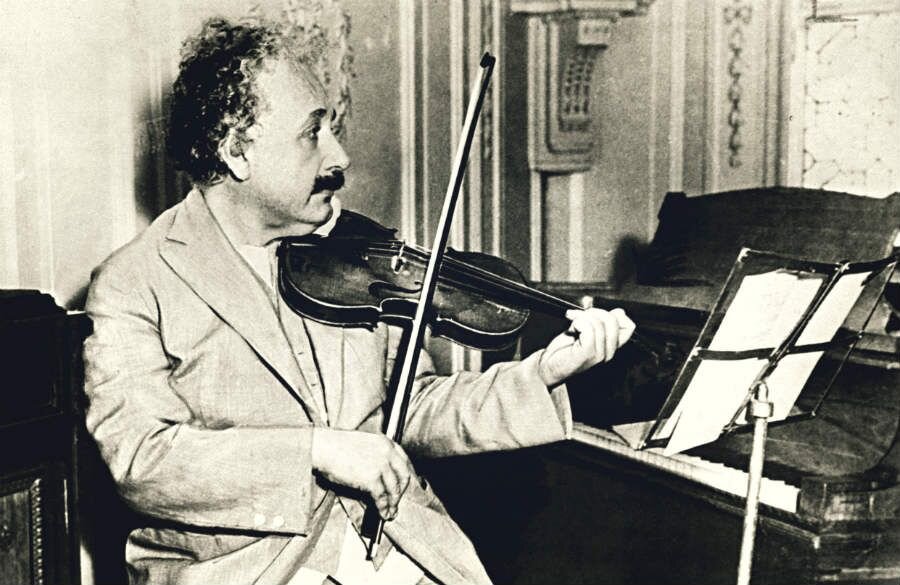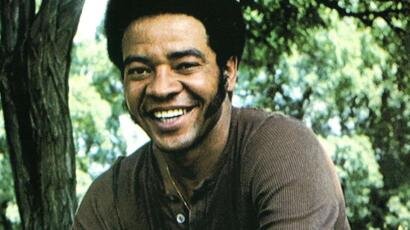By Marco den Ouden
There are two distinct aspects to the brain – the physiological and the psychological. The two were long thought to be separate entities, a theory was popularised by René Descartes who, after ruminating on the subject, concluded that “the mind or soul of man is entirely different than the body”. Gilbert Ryle dismissed this as “the dogma of the Ghost in the Machine”.
Psychology eventually drifted into behaviourism, a ruthlessly deterministic view that all behaviour is determined by reflexes. As Norman Doidge puts it in The Brain That Changes Itself, behaviourists “embraced the idea that all movements are based on reflex responses to previous stimuli, because it left the mind and the brain out of behaviour.” This saw mental disorders as a chemical imbalance in the brain and led to a revolution in pharmacology and the dominance of psychotropic drugs in psychiatric treatment from the 1980s on.
Behaviourism held sway in psychology until the work of neuroscientists like Edward Taub in the 1980s rediscovered the idea of neuroplasticity (which had actually been proposed by Sigmund Freud and others), that the brain is malleable and, in fact, is constantly changing. The work of Taub and others revolutionised our thinking about the brain and how it works.
Psychiatrist Bessel Van Der Kolk writes about the intimate connection between the mind and the body and incorporates insights into the brain’s plasticity in the treatment of post-traumatic stress disorder or PTSD.
Our playlist starts with a look at the physiology of the brain, deftly told by musical comedian Weird Al Yankovic in The Brain Song. It is one of his more serious songs and is a lead-up to a message – protect the brain – wear a helmet. We follow this up with rapper Young MC who also sings about the physiology of the brain but integrates some insights into psychology as he ponders what’s Inside My Head.
What distinguishes the human mind from that of other animals? One of the world’s most famous brains, Albert Einstein gave a radio speech in 1941 on The Common Language of Science in which he talks about the importance of language. African Head Charge samples Einstein’s actual speech adding a superb rhythmic musical background in Language & Mentality.
One of the current explorations in computer science is artificial intelligence. Can the brain and its functions be replicated? This has long been explored by science fiction writers like Philip K. Dick whose novel Do Androids Dream of Electric Sheep? inspired the movie Blade Runner. Imogen Heap takes the role of an android in Me The Machine.
But if the brain and the mind can be replicated, could androids develop the neuroses and other psychological problems humans often develop? Or, as manufactured entities, would they be immune to such problems? Problems like PTSD, a problem explored by Blue Oyster Cult in Veteran of the Psychic Wars. One of the things Bessel Van Der Kolk points out in The Body Keeps The Score is that victims of PTSD experience their memories as happening now rather as a memory of the past. This is reflected in the song lyrics: “the war’s still going on dear” and the plaintive cry “Oh please don't let these shakes go on!”
Ezra Furman explores the impetus to seeking psychological help. Her plea, Can I Sleep in Your Brain is a plea for help. “I can't live with this pain, with this anger, and I need someplace else to go.”
Perhaps the greatest fear of old age is a disease like Alzheimer’s where one loses one’s mind quite literally. Robyn Rowan Hitchcock explores this tragedy in The Abandoned Brain, a deeply affecting song. Alzheimer’s is not madness. It is not insanity. “Roses bloom in the abandoned brain and thoughts run wild on the floor; like a headless corpse, a derailed train, who could ask for anything more?”
On to happier thoughts, it has been said, quite correctly, that the brain is the most important sex organ. Smart men and smart women know this. And indeed, Richard Thompson finds smartness sexy in itself. He has the Hots for the Smarts as he puts it. A humorous song but with a serious side. “Among her delectables, her intellectables must be her sexiest feature.”
Country singer Joe Diffie has a different take on the matter. Perhaps a parody of the anti-drug message “this is your brain on drugs,” Diffie sings about the logical brain and how that “all goes out the window” when that special someone walks by. “This is Your Brain on love.”
Rihanna doesn’t mince words. It’s more than just carnal lust that moves her. It’s a psychological force that knows no restraint. “It beats me black and blue but it fucks me so good and I can't get enough. Must be Love on the Brain.”
Bill Withers passed away this week. He knew of the role the brain plays in love. “Before I make love to your body,” he sings, “I wanna Make Love to your Mind.” A wise man, a great soul singer, sadly missed.
Bill Withers 1938-2020. RIP.
One of the fears in this current pandemic crisis is that social distancing and isolation will lead to a surge in madness, an increase in suicide and in spousal abuse. They say that prisoners go “stir crazy.” How does one cope?
The band ironically named Madness takes a leaf from Dale Carnegie’s book, How to Stop Worrying and Start Living. The first piece of advice Carnegie gives in his book (which I highly recommend if you’re feeling stressed) is to live in day-tight compartments. Carnegie tells the story of Sir William Osler who as a young man was plagued by worries and self-doubt. His life changed when he read twenty-one words written by the historian Thomas Carlyle. “Our main business is not to see what lies dimly at a distance, but to do what lies clearly at hand.”
The band sings: “I'm happy the way that I do things continually feeling okay. I've no worries on what tomorrow brings because I live my life day by day.” Do this and you’ll find that “Madness is All in the Mind.”
Keep safe and keep sane, everyone!
Excellent Axon A-List Playlist:
The Brain Song - Weird Al Yankovic
Inside My Head - Young MC
Language & Mentality - African Head Change
Me the Machine - Imogen Heap
Veteran of the Psychic Wars - Blue Oyster Cult
Can I Sleep in Your Brain - Ezra Furman
The Abandoned Brain - Robyn Rowan Hitchcock
Hots for the Smarts - Richard Thompson
This is Your Brain - Joe Diffie
Love on the Brain - Rihanna
Make Love to Your Mind - Bill Withers
Madness (Is All in Your Mind) - Madness
Big Brainwave B-List Playlist:
Journey to the Centre of the Mind - The Amboy Dukes
Brain Damage - The Waifs
It Must Be Something Psychological - Katie Lee
Always on My Mind - Willie Nelson
In Your Head - Gabby Young and Other Animals
Think Too Much (a) - Paul Simon
Einstein Brain - Admiral Freebee
When the Sun Goes in - Philip Jeays
Weak Brain and a Narrow Mind - Willie Dixon
TNT for the Brain - Enigma
Hjernen er Alene - deLillos
Grey Walls - Richard Thompson
Brain Damage - Eminem
Baby Doll - Laurie Anderson
The River (from The Man Who Mistook His Wife for a Hat) - Matthew Trevino
Veronica - Elvis Costello
Booker T and his Electric Shock - Markley, a Group
Don’t Look Back in Anger - Oasis
Who Ate My Brain - Tizzy Bac
Brain - Banks
Too Many Thoughts in My Head - Weezer
Bet My Brains - Starcrawler
Crowning Cerebellum C-List Playlist of Clever Instrumentals:
Memories of Green (from Blade Runner) - Vangelis
Brain Food (Give Me) - Burning Spear
Brain Smashing Dub - Linton Kwesi Johnson
Brainville - Sun Ra
The Brain of the Purple Mountain - Leo Kottke
Brain Sweeties - Mogwai
Brain Training - Stanley Clarke Trio
Mind Ecology - Shakti
Positive Mindscape - Renegade Soundwave
Amygdala - Henry Cow
The Brain - Chick Corea
Mind Transplant - Alphonse Mouzon
Vulcan Mind Probe - George Duke
The Mental Traveler - David Axelrod
Guru’s Wildcard Pick:
My wildcard pick needs an explanation. First, it is neither a song nor a group that I particularly like. But there’s a story behind the song that is truly incredible. In his book, The Brain That Changes Itself, Norman Doidge discusses neural pathways, how experience creates neural connections, sometimes ones that deviate from the norm. In a remarkable chapter on Acquiring Tastes and Loves he tells the story of Bob Flanagan, the subject of a documentary film called Sick: The Life and Death of Bob Flanagan, Supermasochist. Flanagan was also a performance artist and publicly performed acts of masochism that would turn the stomach of most people. Most people would also dismiss Flanagan as some kind of perverse lunatic.
Flanagan, and indeed, nearly all masochists, according to Doidge, “had all had serious physical illnesses as children, and had undergone regular, terrifying, painful medical treatment.”
Flanagan was born with cystic fibrosis and had experienced the most horrifying childhood. His experience included painful insertion of “needles deep into his chest” to remove pus between his lungs as well as physical isolation in “inside a bubble-like tent”.
Most victims of cystic fibrosis die young. Flanagan’s mind turned pain into pleasure as a self-defence mechanism. It was vital to his existence and when he died at age 43 he was the longest living cystic fibrosis sufferer ever.
The Nine Inch Nails song Happiness in Slavery was inspired by novels on sadism and masochism. The video featured Flanagan experiencing pleasure while being tortured by a machine. The video was so perverse it was widely banned. So, for what it’s worth, here is the Nine Inch Nails and Grammy Award-winning Happiness is Slavery, a testament to the resilience of the human mind as much as an exploitation of bizarre behaviour.
Here is the first 90 seconds of the video featuring Flanagan.
These playlists were inspired by readers' song nominations from last week's topic: Here's a thought: songs about the brain. The next topic will launch on Thursday at 1pm UK time.
New to comment? It is quick and easy. You just need to login to Disqus once. All is explained in About/FAQs ...
Fancy a turn behind the pumps at The Song Bar? Care to choose a playlist from songs nominated and write something about it? Then feel free to contact The Song Bar here, or try the usual email address. Also please follow us social media: Song Bar Twitter, Song Bar Facebook. Song Bar YouTube. Subscribe, follow and share.
Please make any donation to help keep Song Bar running:


